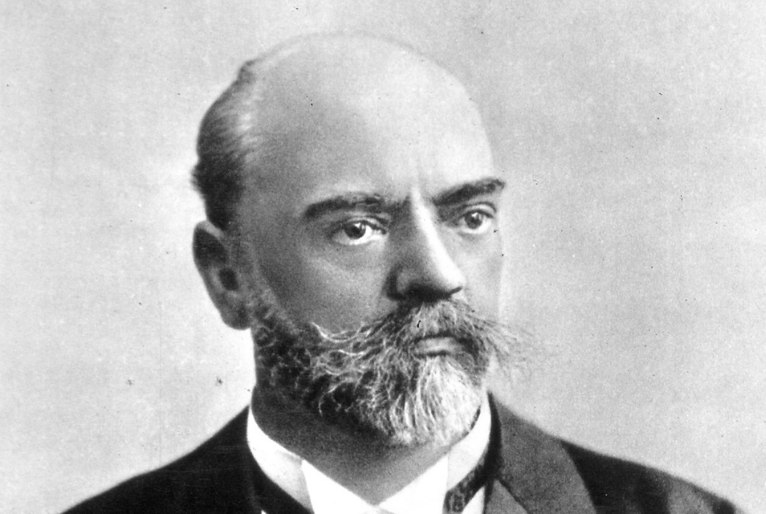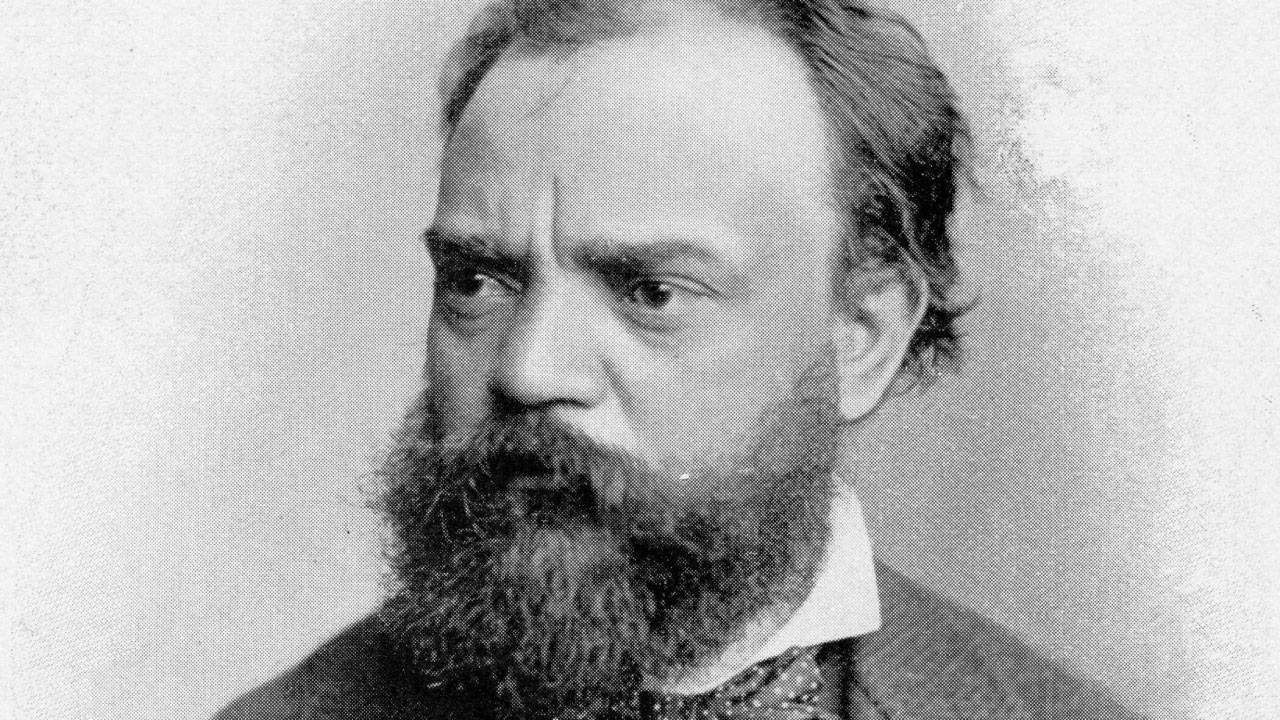Antonín Dvořák, a towering figure in Romantic music, composed works that are celebrated for their melodic beauty and inventive orchestration. His compositions span symphonies, chamber music, and operas, reflecting his Bohemian heritage and his experiences in America. Here’s a look at ten of his most celebrated compositions.
Antonín Dvořák, one of the most celebrated composers of the Romantic era, was born on September 8, 1841, in Nelahozeves, a village near Prague, which was then part of the Austrian Empire. He was the eldest son of František Dvořák, an innkeeper and butcher, and Anna, who worked as a domestic servant. Despite his humble beginnings, Dvořák's talent and passion for music would elevate him to international acclaim.
Growing up in a musical environment, Dvořák showed an early aptitude for music. His father recognized his son's talent and arranged for him to receive basic music lessons. At the age of six, Dvořák began studying violin and piano with a local teacher. His exceptional musical abilities soon became apparent, and he was admitted to the Prague Organ School at the age of 16, where he received formal training in music theory and composition.
Antonín Dvořák, a Czech composer of the late Romantic era, left an indelible mark on the world of classical music. Here are ten fascinating facts about this musical luminary:
1. Antonín Leopold Dvořák was born on September 8, 1841, in Nelahozeves, a village near Prague in what was then the Austrian Empire. He hailed from a humble background, his father being a butcher and innkeeper. His early life in the picturesque Bohemian countryside would later influence his compositions.
Antonín Dvořák, the renowned Czech composer, is celebrated for his captivating melodies, evocative harmonies, and profound musical expressions. His works span a wide range of genres, including symphonies, chamber music, operas, and choral compositions. In this blog post, we dive into the world of Dvořák's music and explore his top 10 songs that have left an indelible mark on the classical music landscape.
Antonín Dvořák was one of the most influential composers of the late 19th and early 20th centuries. His music is celebrated for its melodic richness, rhythmic vitality and harmonic inventiveness. He was also a prolific and versatile composer, who wrote in various genres and forms, from symphonies and operas to chamber music and songs. Here are seven curiosities about his life and work that you may not know.
1. He was born in a small village near Prague, where his father was a butcher and innkeeper. He learned to play the violin, organ and piano from an early age, and showed a natural talent for music. He also had a keen interest in nature and folklore, which influenced his later compositions.
Dvorak - Short Biography
vořák was born in Nelahozeves, a Bohemian village on the Vltava River north of Prague. He came to know music early, in and about his father’s inn, and as a youngster became an accomplished violinist contributing to the amateur music-making that accompanied the dances of the local couples.
Five Facts You Didn't Know About Dvorak
Dvořák was the oldest of 14 children . His father was a zither player, an innkeeper, and also a butcher. A young Antonin not only joined his father in the local band, but also in his business as an apprentice butcher. At the age of 13, he was inducted into the Butcher’s Guild of Zlonice.
#dvořák
#classicalmusic
#orchestra
We are a educational channel specializing in history of classical music.
Our goal is to spread classical music to the greatest number of people.
Explore our channel and listen to more works by Mozart, Chopin, Beethoven, Tchaikovsky, Bach, Haydn, Schumann, Schubert, Vivaldi, Dvorak, Debussy and more! I hope you enjoy it and don't forget to Subscribe. 🎧
🔴 Facebook: https://www.facebook.com/TopClassicalMusic
🔴 WebSite: https://www.melhoresmusicasclassicas.com
Humoresques (Czech: Humoresky), Op. 101 (B. 187), is a piano cycle by the Czech composer Antonín Dvořák, written during the summer of 1894. One writer says "the seventh Humoresque is probably the most famous small piano work ever written after Beethoven's Für Elise."
During his stay in United States, when Dvořák was director of the Conservatory in New York from 1892 to 1895, the composer collected many interesting musical themes in his sketchbooks. He used some of these ideas in other compositions, notably the "New World" Symphony, the "American" String Quartet, the Quintet in E♭ Major, and the Sonatina for Violin, but some remained unused.
In 1894 Dvořák spent the summer with his family in Bohemia, at Vysoká u Příbrami. During this "vacation", Dvořák began to use the collected material and to compose a new cycle of short piano pieces. On 19 July 1894 Dvořák sketched the first Humoresque in B major, today number 6 in the cycle. However, the composer soon started to create scores for the pieces that were intended to be published. The score was completed on 27 August 1894.
The cycle was entitled Humoresques shortly before Dvořák sent the score to his German publisher F. Simrock. The composition was published by Simrock in Autumn, 1894.
The publisher took advantage of the great popularity of the seventh Humoresque to produce arrangements for many instruments and ensembles. The piece was later also published as a song with various lyrics. It has also been arranged for choir. The melody was also used as the theme of Slappy Squirrel in the popular animated television show Animaniacs. In 2004 the vocal group Beethoven's Wig used Humoresque as the basis for a song entitled Dvořák the Czechoslovak.
Dvorak - Humoresque No. 7 in Gb Op. 101-
#MusicHistory
#Humoresque
#Dvorak
We are a educational channel specializing in history of classical music.
Our goal is to spread classical music to the greatest number of people.
Explore our channel and listen to more works by Mozart, Chopin, Beethoven, Tchaikovsky, Bach, Haydn, Schumann, Schubert, Vivaldi, Dvorak, Debussy and more! I hope you enjoy it and don't forget to Subscribe. 🎧
🔴 Facebook: https://www.facebook.com/TopClassicalMusic
🔴 WebSite: https://www.melhoresmusicasclassicas.com
The sonatina op. 100, written during Dvorák's stay in the USA in 1893, is dedicated to his six children. On January 2, 1894, the composer wrote to his publisher Simrock: "Thank God, I am healthy and well, having just completed my 100th work, a sonatina for violin and piano.
It is intended for the youth (dedicated to my children), but grown-ups, adults, shall enjoy themselves with it as they see fit."
It was the last chamber composition he wrote during his sojourn in the United States. Dvořák catered the sonatina to the gradually developing musical abilities of his children, especially those of his 15-year-old daughter Otilie and 10-year-old son Toník, who played piano and violin respectively.
Inspired by the fascinating landscape of Northern America and by meetings with the native Indian inhabitants, a wealth of impressions has found its way into the movements of this sonatina. And that, accordingly, makes it a part of the teaching canon that is not only useful, but also very attractive.
The sonatina was published by Simrock in Berlin in 1894. It also exists in a version for cello and piano.
The four short movements of the sonatina each exhibit a simple and clear, formal structure (hence the diminutive, cf. sonata). They all contain themes, which, like those already found in his other American chamber works (the String Quartet in F and the String Quintet in E♭), owe their inspiration to Indian melodies and Negro spirituals, which are characterized by pentatonic scales and syncopated rhythm, among other traits. The mood of the composition is fresh and joyful. Only the second movement and part of the last movement are nostalgic; they are inspired by the composer's longing for his home country.
A motive for the slow movement Larghetto was hurriedly noted down on Dvořák's shirt sleeve while on a visit to Minnehaha Falls, in Minneapolis, Minnesota. Simrock sold this movement separately, without the composer's permission, and Fritz Kreisler often performed it as Indian Lament. It also appeared as Indian Canzonetta; such romantic titles were not the composer's, but were added subsequently by publishers.
Dvorak - Sonatina for Violin and Piano Op. 100
We are a educational channel specializing in history of classical music.
Our goal is to spread classical music to the greatest number of people.
Explore our channel and listen to more works by Mozart, Chopin, Beethoven, Tchaikovsky, Bach, Haydn, Schumann, Schubert, Vivaldi, Dvorak, Debussy and more! I hope you enjoy it and don't forget to Subscribe. 🎧
#MusicHistory
#ViolinSonata
#Dvorak
🔴 Facebook: https://www.facebook.com/TopClassicalMusic
🔴 WebSite: http://www.melhoresmusicasclassicas.com
The String Quartet in F major, Op. 96, nicknamed the American Quartet, is the 12th string quartet composed by Antonín Dvořák. It was written in 1893, during Dvořák's time in the United States. The quartet is one of the most popular in the chamber music repertoire.
Dvořák composed the quartet in 1893 during a summer vacation from his position as director (1892–1895) of the National Conservatory in New York City. He spent his vacation in the town of Spillville, Iowa, which was home to a Czech immigrant community. Dvořák had come to Spillville through Josef Jan Kovařík who had finished violin studies at the Prague Conservatory and was about to return to Spillville, his home in the United States, when Dvořák offered him a position as secretary, which Josef Jan accepted, so he came to live with the Dvořák family in New York. He told Dvořák about Spillville, where his father Jan Josef was a schoolmaster, which led to Dvořák deciding to spend the summer of 1893 there.
In that environment, and surrounded by beautiful nature, Dvořák felt very much at ease. Writing to a friend he described his state of mind, away from hectic New York: "I have been on vacation since 3 June here in the Czech village of Spillville and I won’t be returning to New York until the latter half of September. The children arrived safely from Europe and we’re all happy together. We like it very much here and, thank God, I am working hard and I’m healthy and in good spirits." He composed the quartet shortly after the New World Symphony, before that work had been performed.
Dvořák sketched the quartet in three days and completed it in thirteen more days, finishing the score with the comment "Thank God! I am content. It was fast." It was his second attempt to write a quartet in F major: his first effort, 12 years earlier, produced only one movement. The American Quartet proved a turning point in Dvořák's chamber music output: for decades he had toiled unsuccessfully to find a balance between his overflowing melodic invention and a clear structure. In the American Quartet it finally came together. Dvořák defended the apparent simplicity of the piece: "When I wrote this quartet in the Czech community of Spillville in 1893, I wanted to write something for once that was very melodious and straightforward, and dear Papa Haydn kept appearing before my eyes, and that is why it all turned out so simply. And it’s good that it did."
For his symphony Dvořák gave the subtitle himself: "From the New World". To the quartet he gave no subtitle himself, but there is the comment "The second composition written in America."
Dvorak - String Quartet No. 12 in F major
We are a educational channel specializing in history of classical music.
Our goal is to spread classical music to the greatest number of people.
Explore our channel and listen to more works by Mozart, Chopin, Beethoven, Tchaikovsky, Bach, Haydn, Schumann, Schubert, Vivaldi, Dvorak, Debussy and more! I hope you enjoy it and don't forget to Subscribe. 🎧
#MusicHistory
#StringQuartet
#Dvorak
🔴 Facebook: https://www.facebook.com/TopClassicalMusic
🔴 WebSite: http://www.melhoresmusicasclassicas.com






